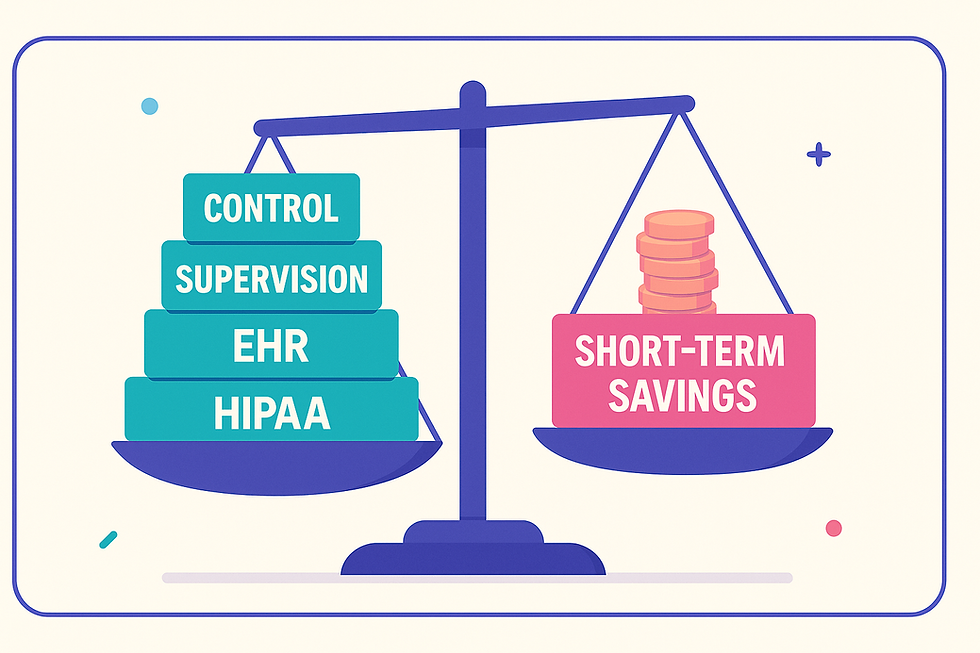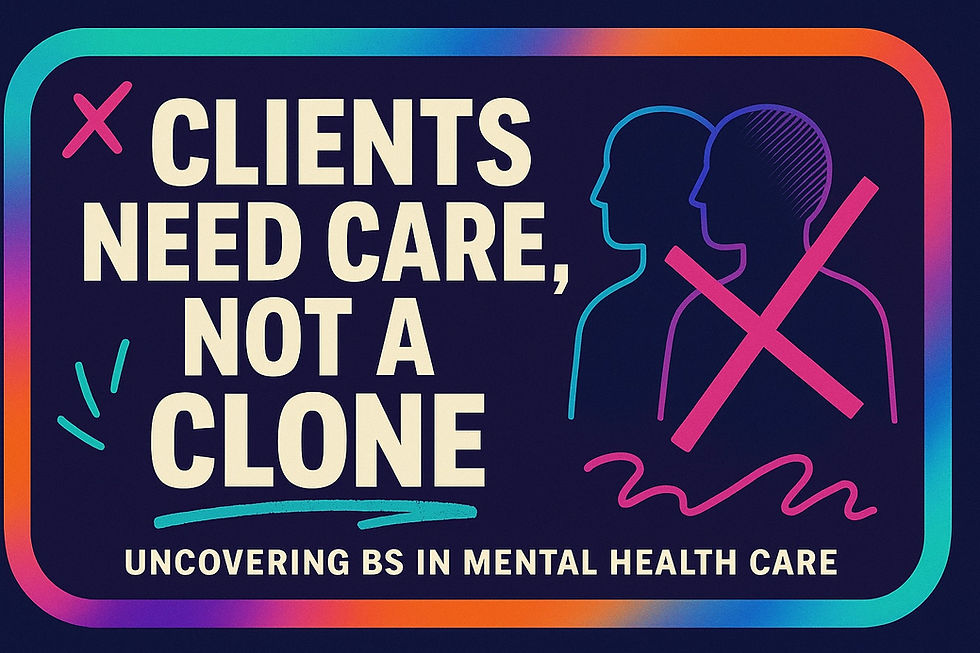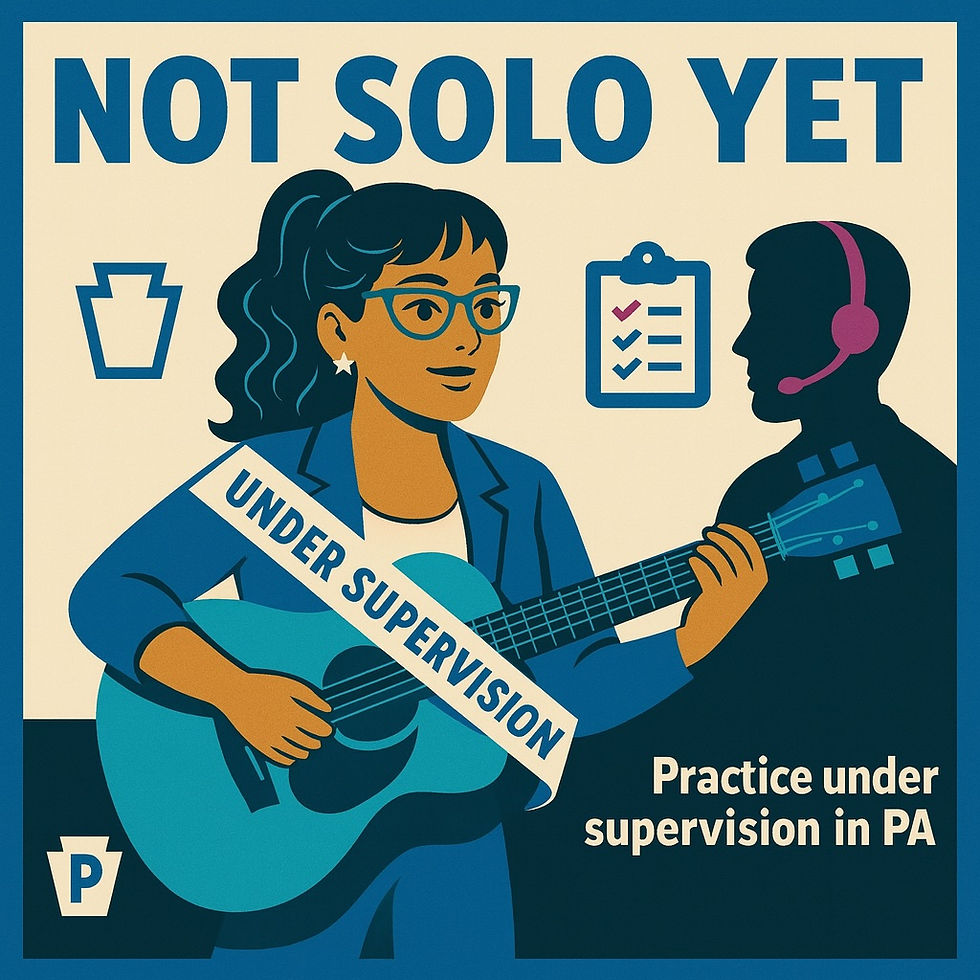Licensed? Not Yet. Independent? Not Okay.
- Cindy Pilcher, MS, LPC, NCC

- Sep 11, 2025
- 2 min read

Imagine the fallout: an associate licensed professional sets up their own practice before they’re legally allowed to, and the ripple effects begin. At first glance, it might look bold, entrepreneurial, even admirable. But the reality? This move doesn’t just affect the individual—it impacts group practices, clients, and the mental health industry as a whole.
The Legal & Ethical Cracks
In Pennsylvania, associate-level clinicians cannot legally practice independently. They require supervision by a fully licensed professional (e.g., LPC, LCSW, LMFT). When an associate disregards this, it doesn’t just bend the rules—it risks client safety, creates liability issues, and can land both the clinician and the practice in hot water with the licensing board. Imagine building a career only to see it jeopardized before full licensure even arrives.
The Client Confusion
Clients assume that if you’re seeing people under your own practice’s name, you’re fully licensed to do so. When that’s not true, it erodes trust—not just with that clinician, but across the field. The public doesn’t usually distinguish between “associate” and “licensed professional counselor.” What they see is therapy. And if the therapy world looks shady or unregulated? Everyone pays the price.
The Strain on Group Practices
Group practices invest heavily in their associates, providing supervision, mentorship, referrals, training, and liability coverage. When an associate cuts corners to go solo, it undercuts the very system designed to help them grow. It’s not just a betrayal of the investment; it also makes group practice owners more hesitant to bring on and train future associates. Fewer training opportunities mean fewer pathways for new counselors, resulting in longer waitlists for clients.
The Industry Backlash
If enough associates start operating like they’re fully licensed, regulators will take notice. That means tighter restrictions, heavier oversight, and more hoops for everyone to jump through—whether you followed the rules or not. In an industry already drowning in paperwork and compliance demands, that’s the last thing we need.
The Bigger Picture
The mental health field is in desperate need of new clinicians. We need associates. We need training pipelines. We need safe, ethical, compliant pathways into this work. Associates practicing independently may think they’re building freedom—but really, they’re shaking the very foundation of the system they’re trying to thrive in.
Bottom line: Being an associate is a season—not a sentence. It’s a time to learn, grow, and gather the hours you need under the umbrella of supervision. Trying to skip that step doesn’t just hurt your career—it ripples outward, straining practices, confusing clients, and threatening the credibility of the whole profession.



Comments